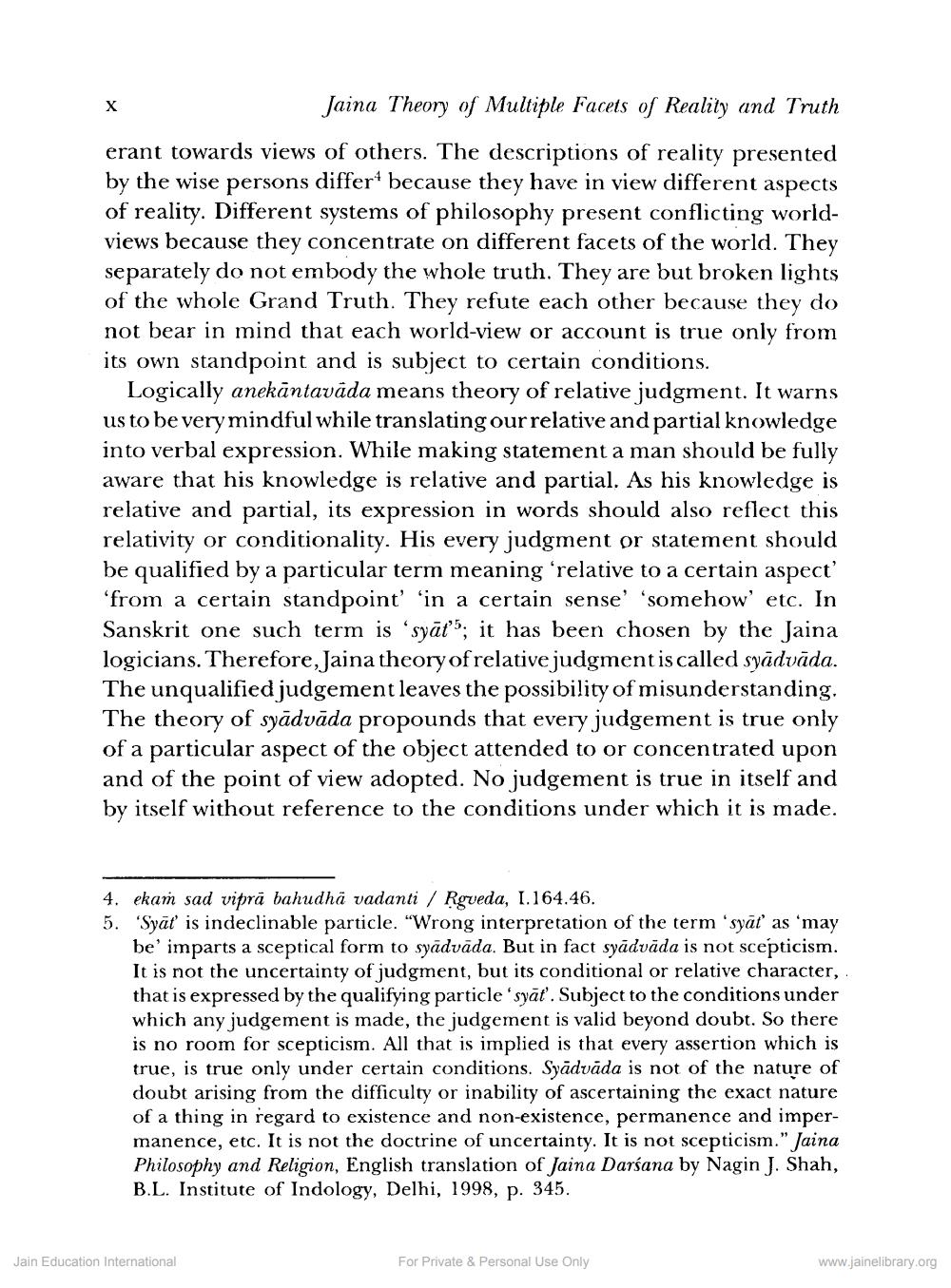________________
Jaina Theory of Multiple Facets of Reality and Truth
erant towards views of others. The descriptions of reality presented by the wise persons differ1 because they have in view different aspects of reality. Different systems of philosophy present conflicting worldviews because they concentrate on different facets of the world. They separately do not embody the whole truth. They are but broken lights of the whole Grand Truth. They refute each other because they do not bear in mind that each world-view or account is true only from its own standpoint and is subject to certain conditions.
Logically anekantavāda means theory of relative judgment. It warns us to be very mindful while translating our relative and partial knowledge into verbal expression. While making statement a man should be fully aware that his knowledge is relative and partial. As his knowledge is relative and partial, its expression in words should also reflect this relativity or conditionality. His every judgment or statement should be qualified by a particular term meaning 'relative to a certain aspect' 'from a certain standpoint' 'in a certain sense' 'somehow' etc. In Sanskrit one such term is 'syať""; it has been chosen by the Jaina logicians. Therefore, Jaina theory of relative judgment is called syādvāda. The unqualified judgement leaves the possibility of misunderstanding. The theory of syādvāda propounds that every judgement is true only of a particular aspect of the object attended to or concentrated upon and of the point of view adopted. No judgement is true in itself and by itself without reference to the conditions under which it is made.
X
4. ekam sad viprā bahudhā vadanti/ Rgveda, I.164.46.
5. Syat' is indeclinable particle. "Wrong interpretation of the term 'syat' as 'may be' imparts a sceptical form to syādvāda. But in fact syādvāda is not scepticism. It is not the uncertainty of judgment, but its conditional or relative character, that is expressed by the qualifying particle 'syat'. Subject to the conditions under which any judgement is made, the judgement is valid beyond doubt. So there is no room for scepticism. All that is implied is that every assertion which is true, is true only under certain conditions. Syadvāda is not of the nature of doubt arising from the difficulty or inability of ascertaining the exact nature of a thing in regard to existence and non-existence, permanence and impermanence, etc. It is not the doctrine of uncertainty. It is not scepticism." Jaina Philosophy and Religion, English translation of Jaina Darśana by Nagin J. Shah, B.L. Institute of Indology, Delhi, 1998, p. 345.
Jain Education International
For Private & Personal Use Only
www.jainelibrary.org




